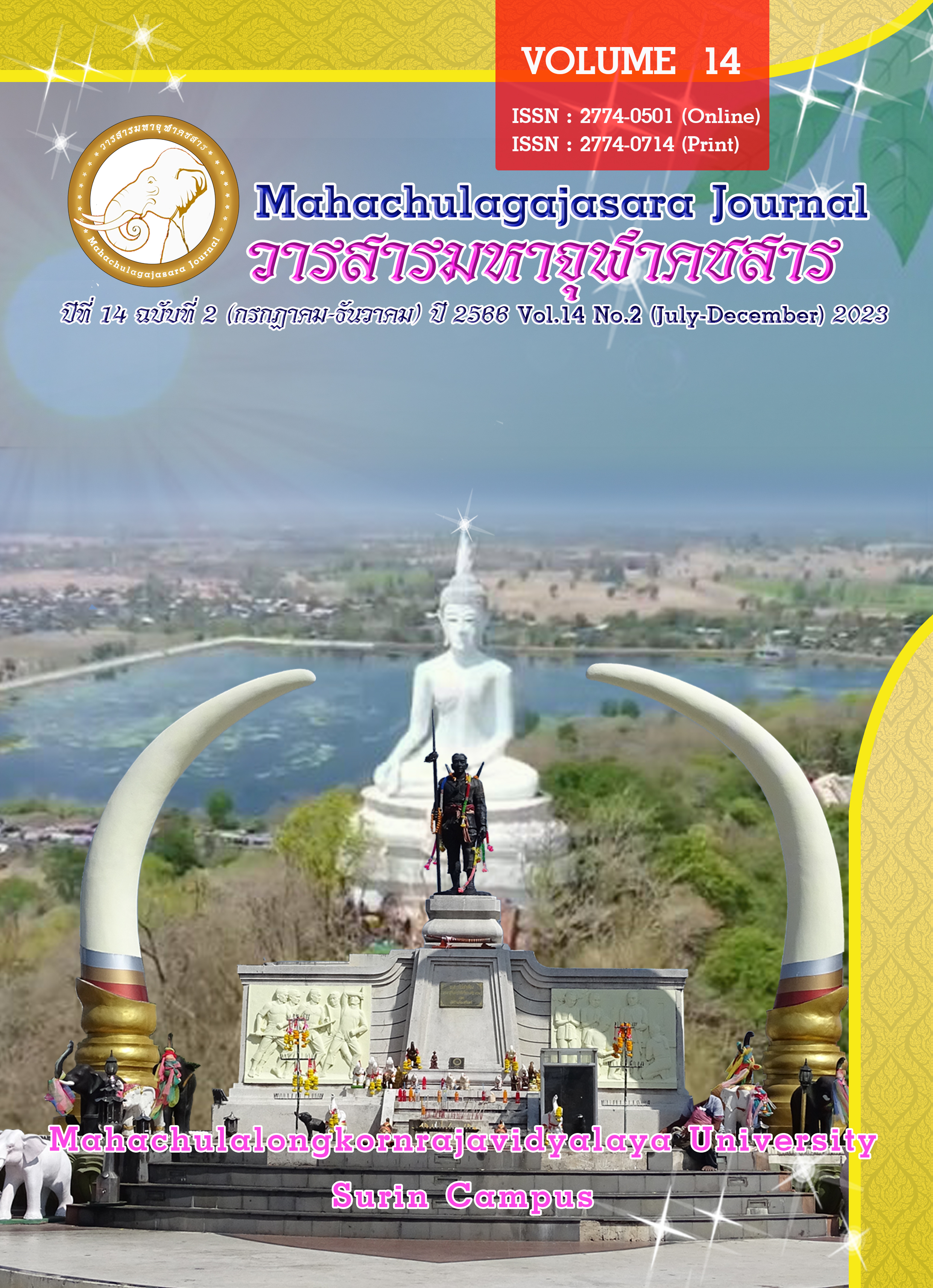A Comparison of the Effect of Game-Based and Story-Telling Learning Methods on Chinese Academic Achievement and Attitude Toward Learning Chinese as a Foreign Language in Thailand-Based Kindergarten 1 Students
คำสำคัญ:
Academic Achievement;, Attitude Toward Language Learning;, Chinese as a Foreign Language;, Game-Based Learning Method;, Story-Telling Learning Methodบทคัดย่อ
This quasi-experimental quantitative study was aimed at comparing the Chinese academic achievement and attitude toward learning Chinese as a foreign language (CFL) among Kindergarten 1 (K1) students under the game-based (as intervention) and story-telling (as traditional instruction) learning methods at an international school in Thailand. A 3-week intervention was implemented on a convenience sample of two K1 classes, enrolled at the target school during the academic year 2022-2023. For the data collection, the Chinese monthly test for November 2022, and the Attitude Toward Learning Chinese as a Foreign Language Questionnaire (adapted from Gardner, 2010), were used. Data analysis was conducted using descriptive statistics (i.e., frequencies, percentages, means and standard deviations) and comparative analysis (using independent samples t-tests) on the collected data. From the data analysis, it was found that:
- K1 students had an average gain of 5.18 ± 2.68 points in Chinese academic achievement after learning under the game-based learning method;
- K1 students had an average gain of 4.28 ± 2.40 points in Chinese academic achievement after learning under the story-telling learning method;
- a larger gain in attitude toward learning CFL was observed for K1 students after studying under the game-based learning method (0.38 ± 0.29) than for those under story-telling learning method (0.15 ± 0.34);
- no significant difference (α = .05) was found in the gain in Chinese academic achievement between the students learning under the game-based learning method and those learning under story-telling learning method; and
- there was a significant difference (α = .05) in the gain in attitude toward learning CFL between the students using game-based and story-telling learning methods.
Downloads
เอกสารอ้างอิง
Brown, H. D. (2002). Principles of language learning and teaching (4th ed.). Longman.
Fu, N. (2018). Digital storytelling for non-background learners of Chinese: A case study of a primary school in Australia [Unpublished master’s thesis]. Western Sydney University.
Gardner, R. C. (2010). Motivation and second language acquisition. Peter Lang Publishing.
Hartono, R., Mukhaiyar, Rusdinal, & Ananada, A. (2021). Teaching speaking through storytelling. Advances in Social Science, Education and Humanities Research, 579, 113-118.
Kanoksilpatham, B. (2011). National survey of teaching Chinese as a foreign language in Thailand. Proceedings of the Second Annual International Symposium of Foreign Language Learning. https://www.researchgate.net/publication/283712679
Landers, R. N. (2014). Developing a theory of gamified learning: Linking serious games and gamification of learning. Simulation Gaming, 45(6), 752–768.
Luo, L. L. (2013). The application of games in teaching Chinese as a foreign language [Unpublished master’s thesis]. Henan University. https://d.wanfangdata.com.cn/thesis/D371123
Merriam, S. B. (2009). Qualitative research: A guide to design and implementation. Wiley.
Ministry of Education. (2008). The Basic Education Core Curriculum B.E. 2551 (A.D. 2008). http://academic.obec.go.th/images/document/1525235513_d_1.pdf
Sulzby, E. (1985). Children’s emergent reading of favorite storybooks: A developmental study. Reading Research Quarterly, 20, 458-482.
Teale, W. H., & Sulzby, E. (1986). Emergent literacy as a perspective for examining how young children become writers and readers. Ablex Publishing Corporation.
The Nation Thailand. (2012, April 23). Chinese most popular foreign language for Thai students [Press release]. https://www.nationthailand.com/national/30180543
Wang, X. X., & Tang, M. (2019). The current situation and suggestions of preschool Chinese bilingual education in ethnic minority areas. Proceedings of the 2nd International Workshop on Education Reform and Social Sciences. https://doi.org/10.2991/assehr.k.191206.054
Wen, Y. (2018). Chinese character composition game with the augment paper. Educational Technology & Society, 21(3), 132-145.
ดาวน์โหลด
เผยแพร่แล้ว
รูปแบบการอ้างอิง
ฉบับ
ประเภทบทความ
สัญญาอนุญาต
ลิขสิทธิ์ (c) 2023 วารสารมหาจุฬาคชสาร

อนุญาตภายใต้เงื่อนไข Creative Commons Attribution-NonCommercial-NoDerivatives 4.0 International License.





